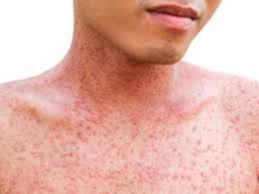WHO report highlights the need for thermostable measles vaccine
April 17, 2019 | Wednesday | Views
Following the WHO measles surveillance report, published on 15 April (2019), that reported measles cases so far in 2019 have increased by approximately 300%
James Mather, MChem, Senior Pharma Analyst at GlobalData, a leading data and analytics company, offers his insight on the alarming resurgence of the vaccine-preventable disease:
“The WHO report is the major increase in outbreaks occurring throughout the developing world, with reported measles cases across Africa increasing by more than 700%. Alongside these increases there has been outbreaks of measles in developed countries, and has attracted significant media attention because of the role of vaccine hesitance in countries which have otherwise high vaccination rates.
“KOLs interviewed by GlobalData from emerging markets stated that vaccine hesitancy is not a primary contributor to low coverage of measles vaccinations. Instead the core issues pertaining to dangerously low vaccination rates are poverty and logistics. Conducting national immunizations on the scale required to provide adequate protection against highly infectious diseases can be extremely expensive, especially in areas with underdeveloped infrastructure or challenging climates.
“The major logistical problem of delivering live-attenuated vaccines, such as MMR, is the requirement to maintain the cold chain during transportation. It can be very expensive, particularly in hot climates, to keep the vaccine components below 8°C; this obviously has a significant impact on coverage in poor rural areas. This highlights a key unmet need in protection against measles, which is the need to develop a thermostable vaccine. Serum Institute of India launched a live-attenuated rotavirus vaccine in 2017 which does not require refrigeration; this demonstrates that thermo-stability is attainable with this class of vaccine.”









